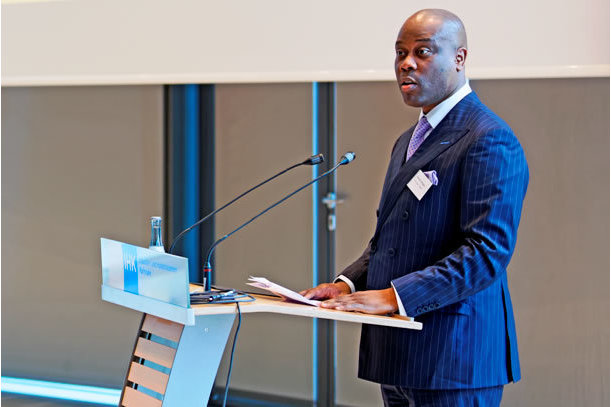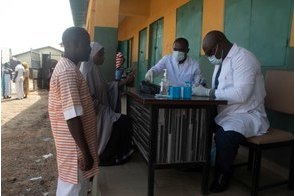Access Bank supports efforts to eradicate malaria in Africa

Summary
155 million people suffered from malaria in Africa in 2018, compared to 4.5 million people so far infected with COVID-19 on the continent.
Drawing from experiences and data garnered from operating across Africa, the Group Managing Director and CEO of Access Bank Plc, Herbert Wigwe, highlighted technological innovation, compelling storytelling, and public-private partnerships as crucial to eradicating malaria across the continent. Wigwe made this assertion at a virtual event hosted by GBCHealth and the Corporate Alliance on Malaria in Africa (CAMA), which was sponsored by Access Bank, to mark the World Malaria Day 2021.
The high-level event had “Combat Malaria in Africa: Lessons and Opportunities" as its theme and brought together global stakeholders to discuss how to ensure progress in the fight to end malaria during the COVID-19 pandemic and beyond. The conference also marked the launch of the CAMA Partners’ End Malaria project, which is a call to action to support greater collaboration and coordination towards the eradication of malaria.
According to a statement sent to Financial Nigeria by Access Bank, the bank is currently operating in 12 African countries and the number is projected to increase to 15 by the end of 2021. The statement said Access Bank has been able to gather data on malaria and other endemic diseases and also identify key areas that have the potential to significantly impact the eradication of the diseases.
Speaking on behalf of Wigwe, the Deputy Group Managing Director of Access Bank, Roosevelt Ogbonna, said, “If there's anything our experience has shown us over the course of the last two years, it is that these problems in themselves are not insurmountable, and that there are many opportunities that COVID-19 … suggest in the fight against malaria.”
In highlighting the impact of technological advancement in healthcare, the CEO, said, “We have seen the work that many tech brands are doing in providing alternative perspectives on healthcare. Technological innovations have also made access to healthcare cheaper and made it easier to take healthcare to the remotest parts of the African continent.”
Emphasizing the role of public-private partnerships in the elimination of malaria from the continent, Wigwe pointed out that it was not possible for the public sector to do it alone. “There is a need for the private sector to galvanise capital and the entrepreneurship drive and spirit required to move any enterprise forward – and healthcare is no different,” he said.
Wigwe said there is a lot of storytelling around COVID-19, but if we compare the data between the pandemic and malaria, it speaks volumes. About 155 million people suffered from malaria in Africa in 2018, compared to 4.5 million people so far infected with COVID-19 on the continent. There have been about 120,000 deaths in Africa from COVID-19, whereas 900,000 yearly deaths are caused by malaria on the continent. According to Wigwe, the tragic story of the onslaught by malaria in Africa is not being told as effectively as it should; therefore, Access Bank is using its corporate website and social media platforms to help tell the malaria story to bring the necessary focus to it.
The conference explored how various countries have adapted their health programmes in the fight against malaria, especially during the pandemic, and highlighted the opportunities for collaboration to scale up malaria control efforts and impact.
Amongst the speakers at the event were Dr. Osagie Ehanire, Nigeria’s Minister of Health; Peter Sands, Executive Director, The Global Fund to Fight AIDS, Tuberculosis and Malaria; Dr. Malick Diara, Public Health Manager, ExxonMobil Corporation; Dr. Janis Davis Street, Global Director, Public Health & Special Projects, Chevron; Zouera Youssoufou, Managing Director and CEO, Aliko Dangote Foundation, amongst others.
By leveraging the CAMA platform and working with partners across the countries of its operations, Access Bank said it remains committed to providing financial resources as well as lending it voice to the fight against malaria across Africa.
Related
-
Gates Foundation CEO says polio's return to Nigeria is her 'biggest disappointment'
Nigeria had recently accounted for more than half of the world’s polio cases, but was declared ...
-
Access Bank commemorates World Hepatitis Day
In Nigeria, knowledge of the viral hepatitis remains low with an estimated 10 million persons having the chronic hepatitis ...
-
Why Nigeria took so long to get non-polio endemic status
Nigeria’s move off the list of polio endemic countries leads us to three questions: Firstly, why did it take Nigeria ...










